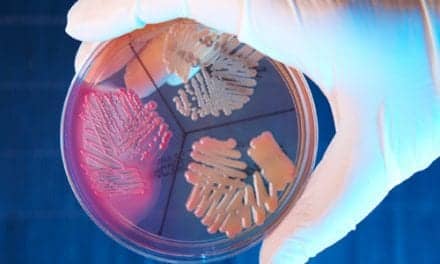A new experimental antibiotic successfully treats MRSA infection and restores the efficacy of a commonly prescribed antibiotic that has become ineffective against MRSA, reports Science Daily.
In research published in the July issue of Antimicrobial Agents and Chemotherapy, Rutgers scientists say that the combination of their newly developed antibiotic, TXA709, with cefdinir, an antibiotic that has been on the market for almost two decades, successfully treated the MRSA infection in animals.
“This is important because even though TXA709 is effective on its own in treating MRSA, combining it with cefdinir — used to treat a wide range of bacterial infections like strep throat, pneumonia, bronchitis and middle ear and sinus infections — makes it even more efficacious, while also significantly reducing the potential for the MRSA bacteria to become resistant in the future,” said Daniel Pilch, associate professor in the Department of Pharmacology at Robert Wood Johnson Medical School.
Pilch and fellow scientists are racing to develop a new class of antibiotics to treat methicillin-resistant Staphylococcus aureus (MRSA) infections, which are responsible for 19,000 deaths annually and represent $3 billion in annual health care costs.









